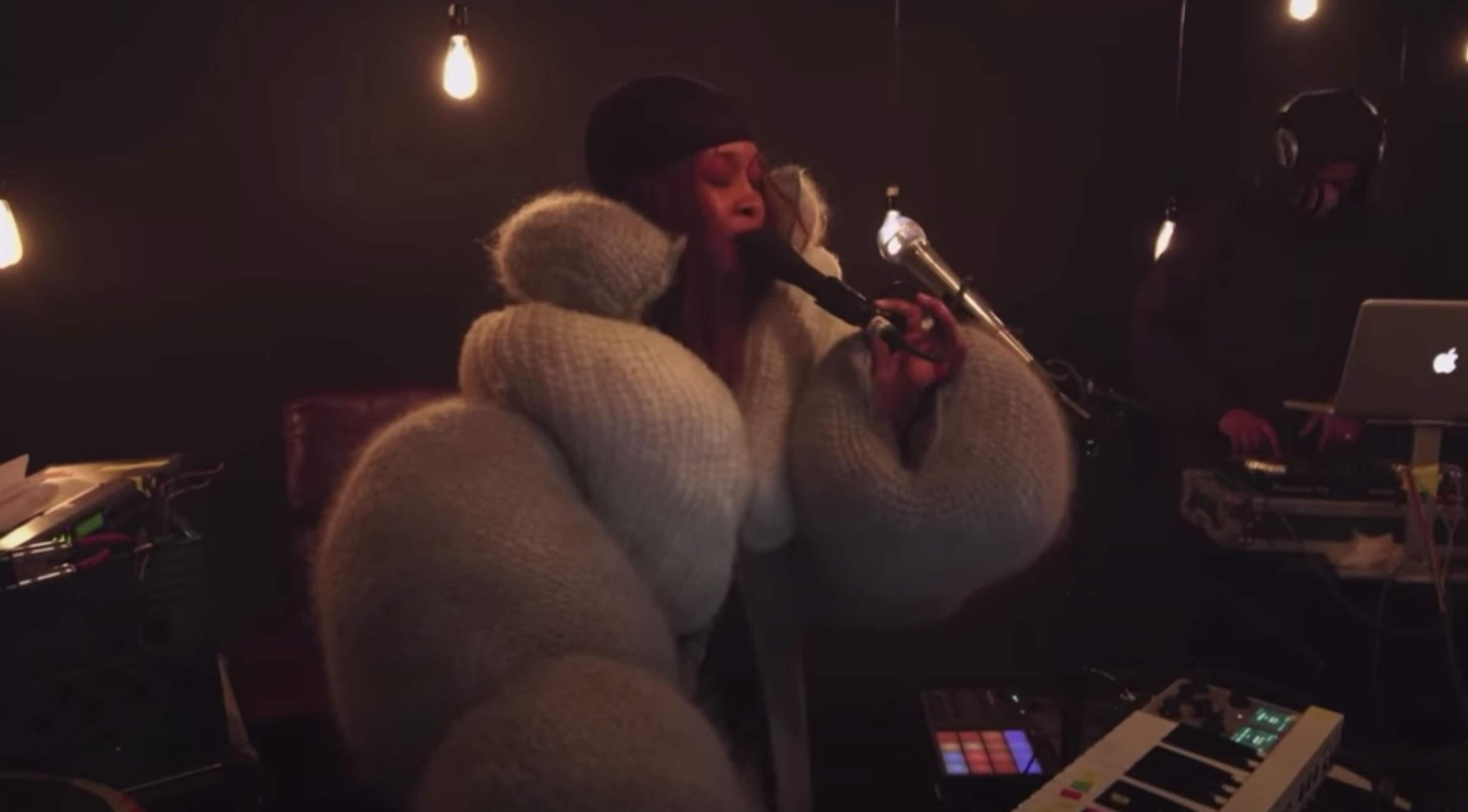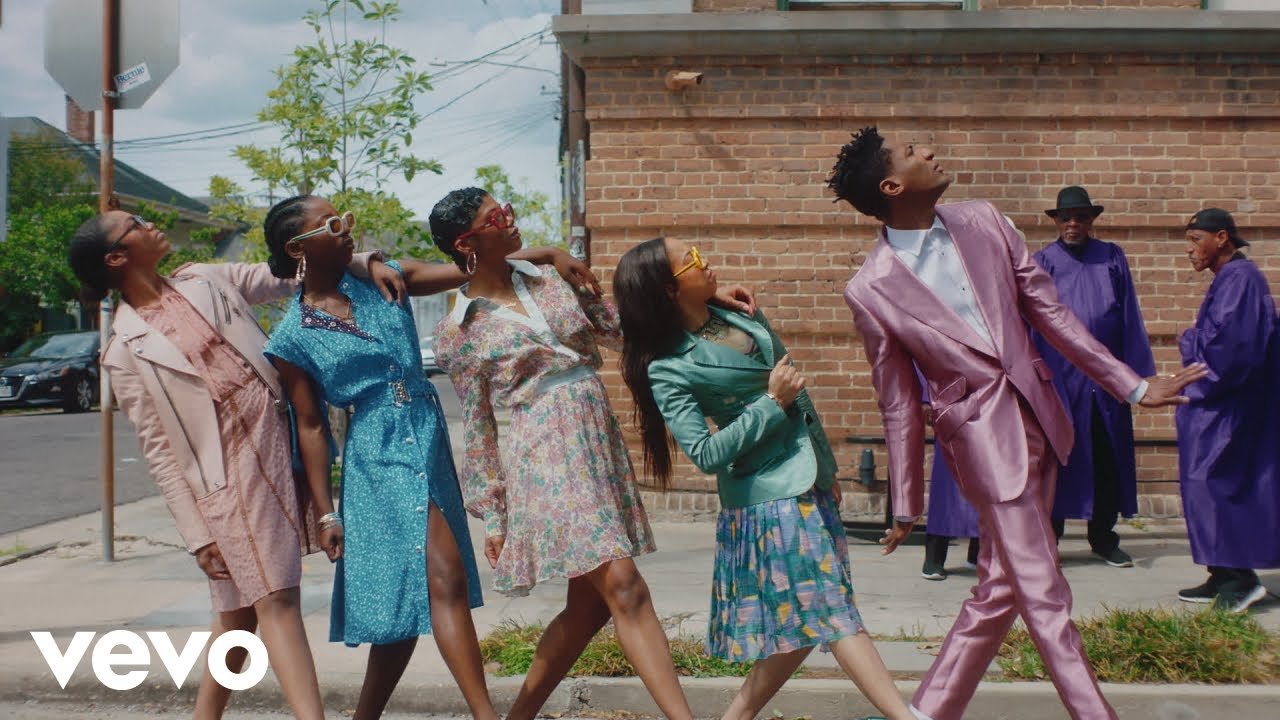Grammy Nominations Suggest Still some Bugs in the System

What you see when you look for a clip of a Grammy performance on YouTube.
NARAS has tried to make the nominations and show more responsive to the reality of the pop marketplace, but it still has a ways to go.
On Tuesday, the National Academy of Recording Arts and Sciences released the slate of Grammy nominees to the usual results. My inbox filled with email from label PR departments and artists’ publicists announcing the nominations, as well as celebrations from nominees and the people who know them on social media.
At the same time, people debated inclusions and exclusions. Machine Gun Kelly’s nomination for Best Rock Album prompted one writer to Tweet, “No way this is fcking real, the album cover itself is a hate crime. Grammy awards are a JOKE and a bad one.” Another wrote, “ONE QUESTION who runs the #GRAMMY ? Cause that MF DEFINETLY has a problem with @NICKIMINAJ I give him 5 years and the grammys will mean NOTHING anymore.They are losing their own worth because of this childish act. The queen is really ruining them without them even noticing #Queen.”
There were a lot of yawns, typified by industry critic Bob Lefsetz, who wrote, “the backward Grammy organization can never be hip. If anything, it’s like your grandpa, donning the cloak of the hip years too late.”
In short, yesterday was like every Grammy nomination day for the last decade and probably longer. The announcement is casually newsworthy now because the Grammys have been trying to deal with the growing disinterest in awards and the show, as well as the hard time black artists have winning the major awards, a tendency that has prompted some of the biggest artists to keep their albums out of nomination. This year, Bruno Mars and Anderson .Paak held their Silk Sonic release out of consideration. Does this year’s nominations suggest any movement on those fronts?
Short answer: No.
It’s an alphabetical accident that the first name on the ballot is ABBA, a Record of the Year nominee for Don’t Shut Me Down, but it starts the read-through on a sour note. Could the record of the year really have been recorded by a band that made its name more than 50 years ago, 40 years after its last album? The rest of the category reads like a tug of war between the pop forces today and the people who used to like pop, with Doja Cat, Harry Styles, Lizzo, Kendrick Lamar, and Steve Lacy balanced by Adele and Mary J. Blige, with Beyoncé in an in-between place. She’s not exactly the old guard, but she far enough along in her career that she’s influencing other nominees.
The rest of the list of nominees reads more or less like that. All are credible as music makers, but if you and friends were going to chew on the categories that you knew, you wouldn’t come up with their lists.
The quick go-to response is that the Grammys are out of touch, which is partly true. The results are a function of the voters coming from across the musical spectrum with very different values and relationships to the pop mainstream. It’s easy to forget all the genres and occupations that fall under the NARAS umbrella, many of which have nothing to do music that might land on Billboard’s Hot 100, but all those people can vote.
For those working in the pop marketplace, an artist’s ability to reach large numbers of people is a measure of the quality of a record, but those in the jazz and blues fields and accustomed to being ignored by the buying and streaming public at large likely value chart success far less. Those in technical fields may focus on the craft of the music creation and its recording more than those in the pop field do, and all these conflicting ideas of what constitutes “the best” mean that some well-recorded, well-crafted records that didn’t make much of an impact on the larger music conversation in 2022 get more Grammy love than they might if relevance is your main barometer.
In the past, a committee of people who knew the fields would process the nominations from NARAS members/voters and try to work out final nominees that made sense. In an effort to do away the hint of shenanigans, NARAS did away with that part of the process and simply tabulated the nominations. That looks to have been successful to the extent that there are few nominations that look clearly wrong. The nominations may not be what they should, but the artists and releases are by and large credible.
Some results suggest that voters don’t hear enough music in the fields to make good decisions. I’ll accept the possibility that a lot of people heard Ozzy Osbourne’s Patient Number 9 and thought it was one of the best metal albums they heard this year, but it makes me wonder how many metal albums they heard, as well as how much metal they listen to. Ozzy is your grandfather’s heavy metal, and that doesn’t mean it’s bad, but there’s nothing 2022 about it. Really, probably nothing very 2012 about it either.
It’s a sign of how far rock’s cachet has fallen as a way for young people to express themselves that in the Best Rock Album category, Machine Gun Kelly and Idles are the only acts under 40. The category is rounded out by Ozzy, Elvis Costello, Black Keys, and Spoon. It also raises questions about what Grammy voters are listening to and how they define “rock.” Does indie make the cut, or does the music need to be hard, distorted, and guitar-forward or blues-oriented or have enough years in service for its “indie-“ prefix not to be a disqualifier?
As usual, the biggest names in music get a lot of nominations, often seemingly because they’re the artists voters know. Adele’s 30 didn’t have nearly the impact on the culture that 25 did, but it got seven nominations. Mary J. Blige’s Good Morning Gorgeous looks like it got four nominations based at least in part on her reputation. Blige has won nine Grammys dating back to 1996, and she won her most recent one in 2009. Good Morning Gorgeous, her 14th album, has a post-divorce narrative and received positive-to-middling reviews. The reviews weren’t so middling to think that voters got it flat wrong, and they all acknowledge the craft in the songs, the performance, and the production, but not so positive that you think this might be one of the albums of the year that you missed.
How do the Grammys deal with the issues? Some are probably inevitable. The sheer amount of music in most of these categories makes hearing and really knowing a lot of it almost impossible. There’s so much action in the Alternative R&B field that it could probably have a list five different nominees without seeming like a misstep, but I’m happy to see Tank & the Bangas and Terrace Martin in it.
An issue that probably can be addressed is voting. Last time I checked, voters voted in a number of fields and the top categories with the idea of encouraging them to vote for music that they knew instead of the names they recognized. [NOTE: If that’s not the case anymore, someone please tell me.) Perhaps it’s time to further limit the number of fields that people vote in, and that voting for the Record of the Year, Album of the Year, Song of the Year, and Best New Artist awards should be limited to those in the industry with a clearer connection to the pop marketplace. Those who work in the roots musics and classical fields have no stake in those pop categories, and those who work in the pop marketplace should have little to say about what goes on roots-oriented fields. The mechanics of those divisions could be challenging and bothersome for those who like having a say in awards that are actually given out during the telecast and not the pre-show.
But the alternative is a continued slide into irrelevance—not, to be fair, that I can remember a time when the Grammys really mattered. They’ve always seemed behind the curve, and it may just be more obvious now because artists are taking issue with that and viewers are finding other things to do beside watch the show. I’ve argued in the past that the Ken Ehrlich-produced shows and their emphasis on “Grammy moments” usually showed a lack of faith in young people and their music, tarting it up with strings or inappropriate guests. You can’t tell young people that their electronically generated music is awesome, then weigh it down with an orchestra.
And there’s no question that the Grammys act old. In an effort to drive viewers to the telecast, the Grammys don’t post the performances on YouTube. For anybody under 25? 30? unaccustomed to watching anything but sports on network time, the Grammys are fighting the uphill fight. Performances that go viral one year would be a good ad for next year, but since the bootleg videos that once went up have been taken down, there’s no evidence online of what viewers are missing. While prepping this piece, I looked at posts on the best and most unusual “Grammy Moments,” and they all feature descriptions paired with videos that are no longer available. In a social media era where content is shared, the Grammys make sure that no one shares theirs.
I’ve never invested in the Grammys as an arbiter of anything, but I’ve always found it a useful snapshot of where the industry as a whole is, and not just the pop marketplace. It hints at what ideas and musical movements have currency and which are still viewed as fringe. This year’s nominations suggest that NARAS is trying to do better, but if it really wants younger viewers and younger artists to buy in, it needs to embrace that audience and its priorities more genuinely instead of waiting for it to act older. A Facebook post I saw started a conversation banging on Beyoncé for being overrated and overrepresented says that the Grammys can’t make everybody happy, so maybe it’s time to decide who they want to please and tailor the show to them. If that target audience is the industry, that’s understandable, but they can’t be surprised if things continue as they are.
Creator of My Spilt Milk and its spin-off Christmas music website and podcast, TwelveSongsOfChristmas.com.






